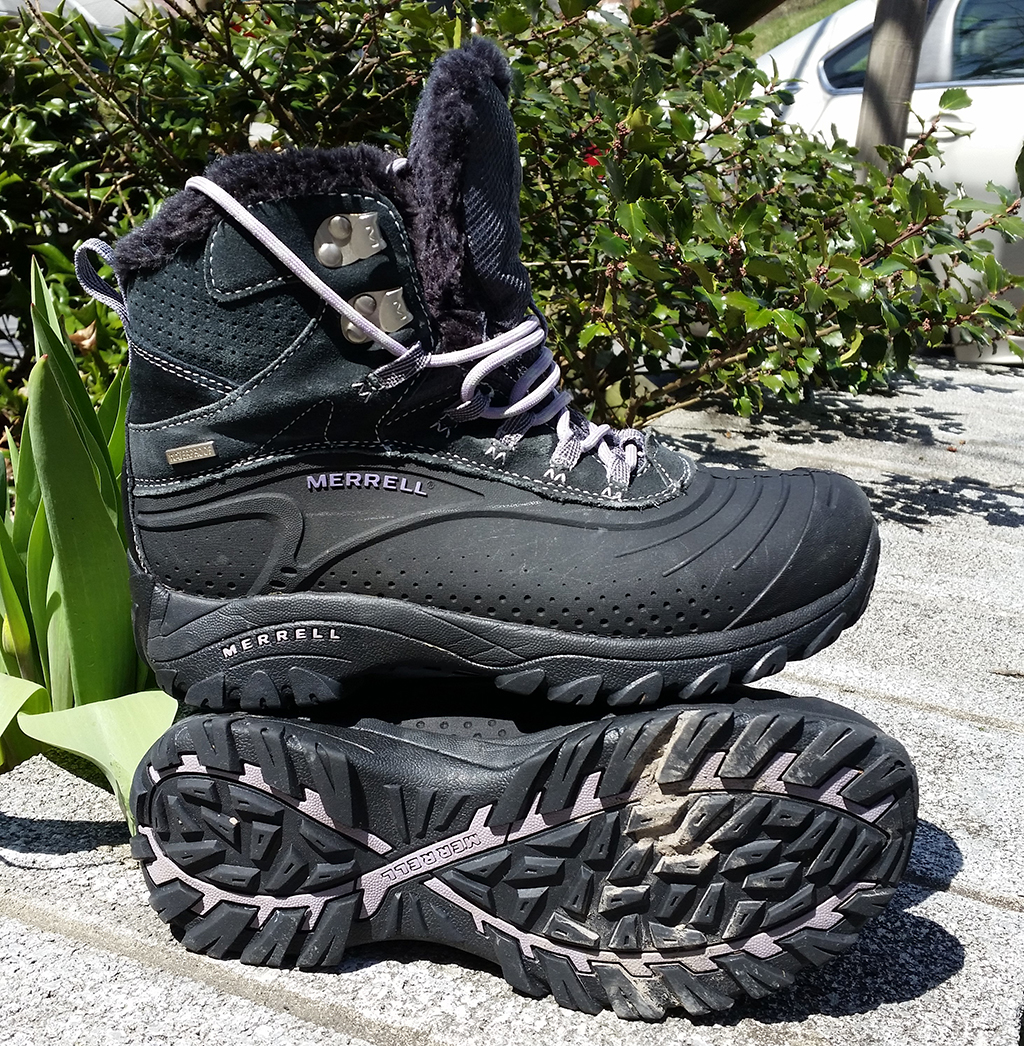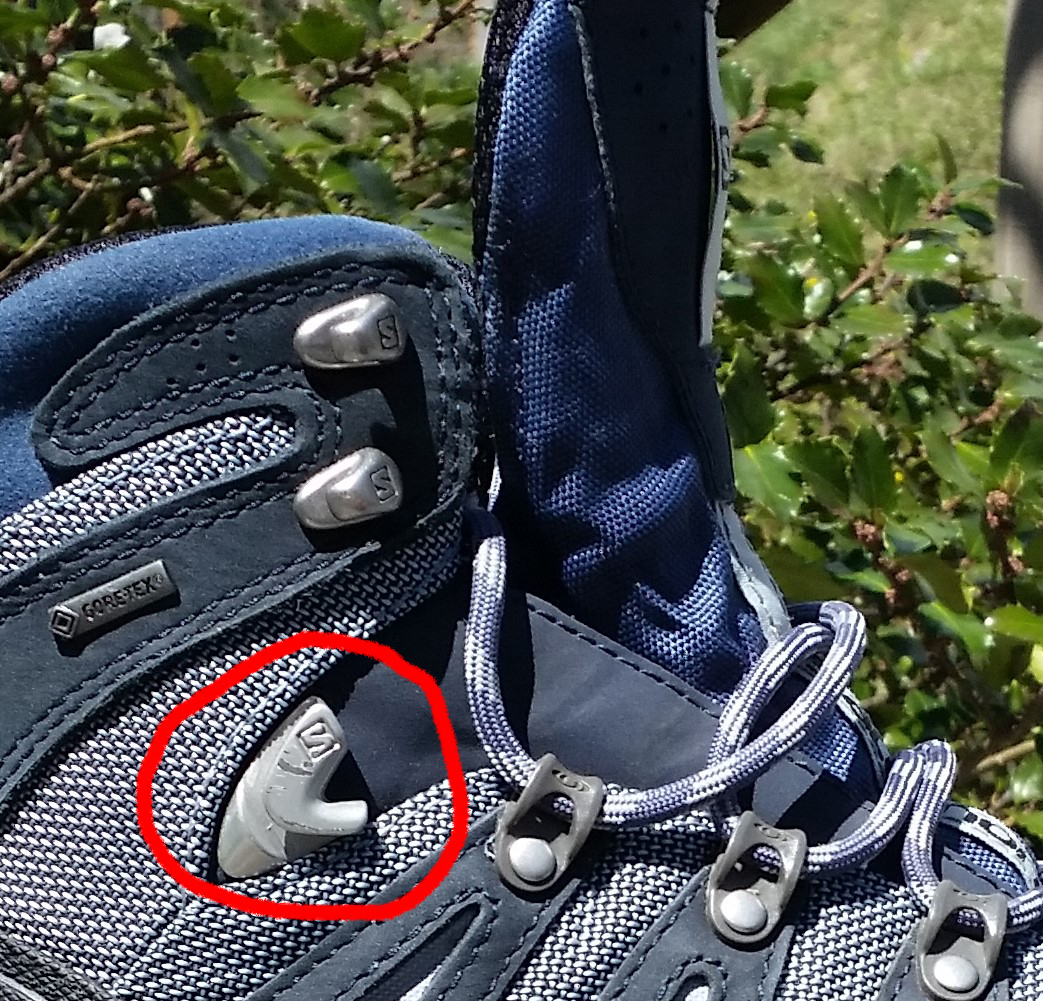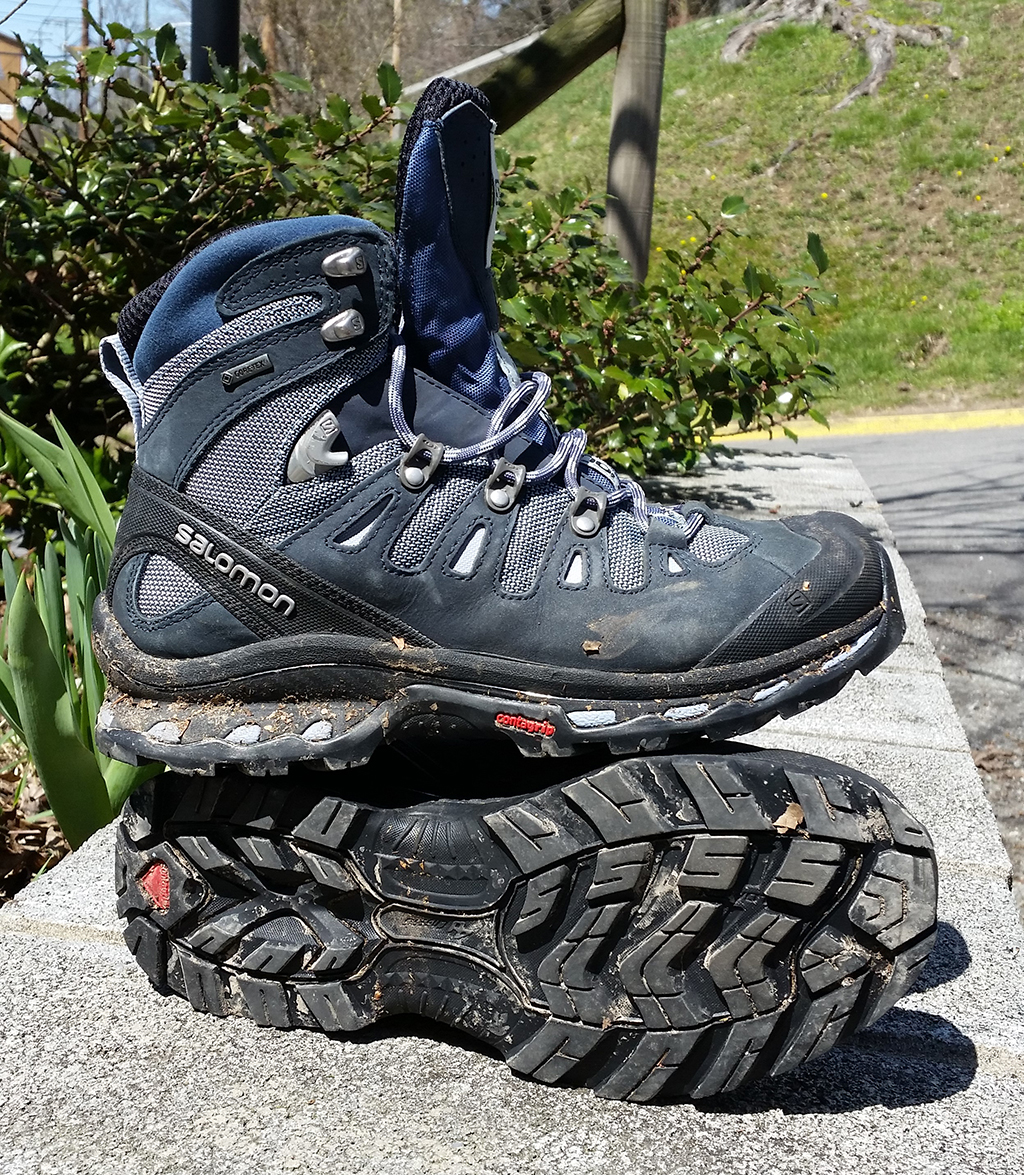Footwear
Footwear is far and away the most important thing to consider when hiking, and one of the first things people ask when they start hiking is, "what kind of shoes should I get?"
The answer is easy: It depends.
Let's take me: I am clumsy, I have high arches, and I have a lot of metal in my right ankle from where I broke it in 2010. This means that for me, boots are essential. I need the extra protection and support. My day-to-day footwear is boots. I don't want to take the chance of turning my ankle when (not if) I take a misstep. So I'm going to talk about boots, because that's the best footwear for me. Some people prefer lighter or minimalist, which is perfectly fine--but not for me.
Since footwear is so dependent upon personal preferences, you need to go to the store (while wearing your thickest hiking socks!) and clomp around in a pair of boots while you're doing some other shopping. REI is perfect for this. The stores I've been in have fake rocks you can clamber over to see if anything rubs or pinches on rough terrain, and they encourage you to walk around, to see how the boot feels for more than just 30 seconds. We're talking ten minutes or more. Do some other shopping while you're testing out the boots. And take into consideration the type of terrain you are going to hike. WV is all hills, and a lot of those steep, so I need to pay attention to my toes and heels when I clamber on that fake rock.
Because of these issues, I have owned a lot of different kinds of boots, and can tell you what I find find best for me, but that may not be the case for you!
I can't emphasize that enough. What works for me might not work for you and vice versa. The only way you're going to know is to try on a lot of different kinds of hiking shoes, and determine what you find comfortable. I know some people adore Vasque, and Michael's current boots are Keens, but Salomons are what has been most comfortable for my feet.
That said, these are some of the brands of boots I own and wear. (I recommend buying from REI. Because REI is awesome, but I put in some links to Amazon, because if you buy something I get portions of pennies to eventually buy books.)
Merrell
 One of my first comfortable pairs of boots were the Moab 2. These are water resistant but not especially water proof, which ended up being a problem for me. They are light and very good for clambering on rocks.
One of my first comfortable pairs of boots were the Moab 2. These are water resistant but not especially water proof, which ended up being a problem for me. They are light and very good for clambering on rocks.
My winter hiking boots are Merrells. They ended up being a good investment because I love hiking in the snow and cold. They're warm and waterproof and the fake fur keeps the snow out.
I've had these boots for several winters, and figure I'm going to have to replace them this coming winter, but they have held up marvelously.
Salomon
My current go-to boots are Salomon. I have three pairs: an older pair that I keep in the trunk in case of falling in a creek and needing a change of boots, a lighter pair that were all that was available during the pandemic, and my newer pair, which are the ones I wear for hikes of any length or on steep terrain.
X ULTRA PIONEER MID CLIMASALOMON
What do I like best about them? The lace locker that keeps the laces from slipping. (Circled in red below.)

Most people won't need as high a boot, but if you do, I believe these are my fourth pair.
 One thing I have started doing on the recommendation of the shoe person at REI is cleaning my boots after every hike. Doing so helps the boots retain their waterproofing and as a bonus keeps me from carrying invasive species between different forests.
One thing I have started doing on the recommendation of the shoe person at REI is cleaning my boots after every hike. Doing so helps the boots retain their waterproofing and as a bonus keeps me from carrying invasive species between different forests.
I started by just rinsing them off in the stationary tub when we got home, but for the past couple years I've been giving them a brief once-over with a scrub brush, to remove any embedded dirt.
It's an extra step when I get home, but I'm finding it to be worth while in keeping my boots in good shape.
Hiking in Streams
One of my favorite things is to hike through and up streams. And as WV has about a million creeks and streams, there is plenty of water for me to play in. However, I don't care for hiking with wet feet. This led to two separate solutions:
1) Waterproof boots. At this point I only buy waterproof boots, and I do my best to keep them waterproof. Adding gaiters helps even more.
2) Water shoes. Sometimes a stream is going to be higher than the tops of my boots. Or I want to play around in a stream. The issue here is (again) that I am clumsy. Water shoes allow me to keep better traction while in the water AND keep me from freaking out and falling over if I step on something that moves. (Sorry, that's just the way I am: Easily startled with unfortunate consequences.)
I clip the shoes onto my backpack and carry a pack towel. When I'm done I dry my feet, wrap the dripping shoes in the pack towel, and clip them back onto my backpack. Most people aren't that picky, but as I said, the combination of hating wet feet and loving to play in streams necessitated this for me.
Socks
Get good socks. Nice thick wool socks. And if you're hiking in the cold, consider adding a pair of thin liner socks. If you think you're going to be getting your feet wet, carry extra socks.
My thick hiking socks are Smartwool. They've held up forever and since I wear liners, they don't itch.
I've several different kinds of liner socks, but the ones I grab are FoxRiver liner socks. I keep the Smartwool wool liners as backups, but I have several pairs of FoxRiver liners. My feet stay dry and I haven't gotten blisters or hot spots even on steep terrain.

